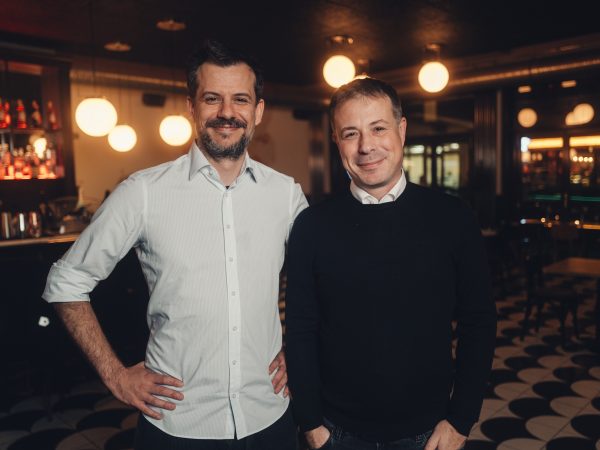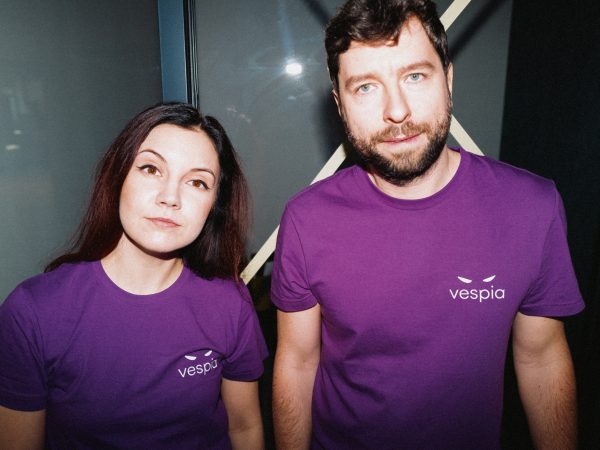The previous article focused on the definition of Generative AI in the larger field of Artificial Intelligence and gave a preview on the applications of the technology in financial services.

Catalina Arateanu
Strategic Partnerships and Ecosystems Manager
Raiffeisen Bank International AG
Beyond the everlasting quest to automate processes, there are legitimate questions being raised that concern the impact of generative AI on creativity and creating new content. What will the development of AI mean for human creativity?
Will imagination be replaced by machine thinking? Is humanity going to become lazy and self-sufficient like it is imagined in the movie Wall-E?
Closer to our timeline, we must address the thought-provoking questions about the impact of generative AI on people and industries that currently rely on human creativity.
AI’s impact on image, video, and writing industries
Generative AI is making a strong impact in fields such as image and video production as well as editing, writing, and marketing. AI companies are developing powerful tools that leverage generative AI to enhance creativity and streamline production processes.
In the visual arts domain, AI-powered tools can generate images and videos based on user prompts. They are also able to modify existing materials, immensely reducing the time and effort needed for editing. Additionally, these tools analyze individual artistic patterns and can adapt to specific styles – from offering suggestions as a creative companion, to fully generating brand new content.
For written content, there is, for example, a common application of generative AI in the marketing industry. Algorithms can analyze consumer data and personalize marketing messages to a more granular level than before. In addition to personalization, marketers can automate more processes than before, from content creation to campaigns optimization – although it remains to be seen what the difference will be when all the industry specialists implement similar strategies. The statement can be extrapolated to all areas that rely on human creativity, the danger being that over-reliance on AI-generated content may lead to non-descript, universally dull pieces of information that stop making any significant impact.
Writers can use generative AI assistants to research subjects, brainstorm ideas and bring structure to materials. Writer’s block may become a thing of the past when you have a friendly assistant who never sleeps.
AI’s impact on creative professions
While generative AI presents exciting opportunities, it also raises concerns for people working in creative industries – the most prominent one being the threat to jobs: when the machine-generated content reaches a certain level of quality, the demand for human-generated content might decrease. At the time this article is being written, both the Writer’s Guild of America and the SAG-AFTRA, the largest American actor’s union, are on strike. In both cases, a part of the demands addresses the need of having safeguards around the use of artificial intelligence.
On a larger scale, there is a certain risk of losing individuality. Algorithms generate content based on the most predictable combinations existing in the large quantities of training data, which can in exchange lead to the loss of new ideas and new combinations if humans start to rely too much on artificially generated content. We risk living in a world where everything is done in a way it was done before.
Last but not least, we are far yet from addressing all the ethical considerations regarding the ownership and transparency of intellectual property. As AI algorithms generate content based on existing data, issues surrounding copyright and fair use need to be addressed to ensure responsible and legal use of AI-generated content.
We can do several things to leverage the impact of generative AI on creativity:
- Invest in education: we do not fear what we know. The best way to make perfect use of a tool is to study and understand it and use it for the good reasons. It’s not the first technological revolution we face and will certainly not be the last. As always, learning is essential to fully unleash the benefits that an invention brings to the world.
- Emphasize the importance of creativity and human touch. After all, AI itself is the result of human imagination.
- View AI as a companion and an enhancing technology rather than an enemy or a threat. We need to acknowledge the impact and integrate the new content and activities into our lives in a beneficial way.
- Establish safeguards and emphasize the responsible use of AI. Many countries are currently discussing some form of best practices, agreements and even legislation to protect humans and human rights and make sure that the technologies are used in a benevolent and safe way. One example of legislation is the EU proposed AI Act in 2021.
Adjusting to the influence of generative AI
Generative AI is not perfect and not a solution for everything creative. It is excellent in addressing areas where humans are not so good, such as repetitive tasks or making minor adjustments, so that we can spend more time where we make a difference: high creativity, engagement, and empathy. Generative AI assistants support us in exploring areas that are new to us and where we lack the initial confidence to try, thus enhancing and not limiting the realms of the human mind.


